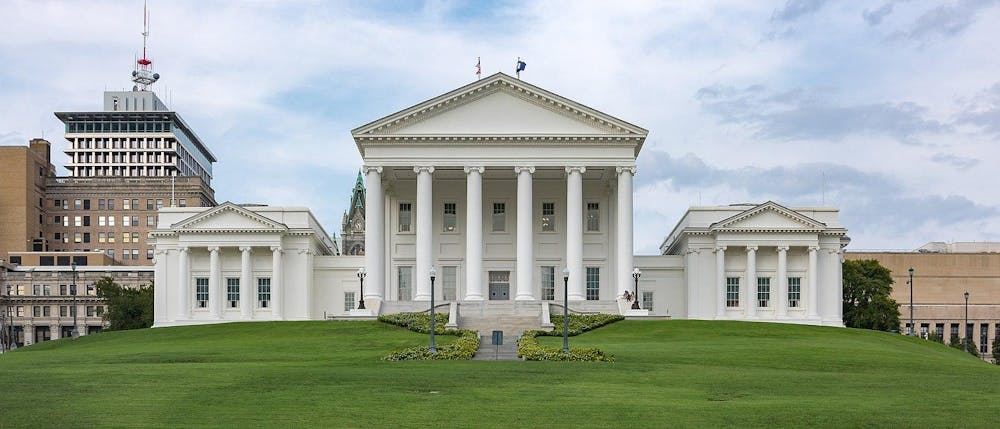Youngkin has announced that he will revoke funding for cities that do not comply with federal immigration laws, better known as sanctuary cities. These cities pass laws that restrict enforcement of immigration law on federal agents, whereas other cities have local officers share responsibility for processing and reporting any illegal immigrants. Richmond currently exists as such a city, separating the duties of local and federal law enforcement officers. Critics of sanctuary cities consistently misrepresent them as dangerous and economically stagnant. Similarly, Youngkin has trafficked in a vehemently inaccurate perception of these laws, espousing a policy that is ignorant to the benefits that sanctuary laws can create for a city.
The ultimate goal in every sanctuary city is to create an environment where local law enforcement can utilize immigrants in the justice system as witnesses. If an immigrant lacks proper documentation, they are unlikely to cooperate willingly with police. Without such cooperation, cases may become more hostile or not properly evidenced. Despite this emphasis on safety, one of the most frequently peddled rumors about sanctuary cities is that they are unsafe for residents. Youngkin himself cited the safety of Virginians as the primary cause of his opposition to these city laws. Critics of sanctuary cities love to cite specific examples of immigrants committing crimes as justification for harsher laws surrounding immigration.
However, when this data is expanded, a different reality is shown. For one, a famous study shows that undocumented immigrants have a lower crime rate than that of American citizens. Ignore this fact, and the concern over safety still falls short when one observes that sanctuary cities have a lower crime rate than non-sanctuary cities. The statistics show that labeling sanctuary cities as dangerous is merely fear mongering which relies heavily on bias.
While these broader statistics are helpful, murder rates in Richmond before and after the implementation of sanctuary city laws in 1990 truly demonstrate that crime has not worsened in Virginia cities with sanctuary laws. Since 1990, murder rates have for the most part declined. While we cannot say that this is purely due to immigration law, the trend disproves the notion that increased immigration — or the implementation of sanctuary city laws — resulted in a major increase in crime. Thus when we expand our field of view to all the facts, the real trends of crime tell a non-negative tale, one that does not require drastic action as Youngkin believes.
Another unsubstantiated rumor often cited as reason to override sanctuary city laws is the negative economic impact of migrants. In reality, however, the numbers concealed by these critics show that sanctuary cities are more economically vibrant than their counterparts — higher income, lower poverty rates, lower unemployment and higher labor force participation are all seen in these cities. Again, the effect is not entirely causational, but when we focus on Richmond, the effects certainly are not poor. Per capita income has been rising steadily since 1990, and unemployment has followed the national average — though now, income is 0.7 percent better. Even if there is an economic effect of becoming a sanctuary city, then it must be good for original residents.
While economic impact is real, a justifiable concern against sanctuary cities is the sheer cost that they pose to local governments. Major sanctuary cities like New York City spend billions on publicly-funded healthcare plans and lawyer funds for illegal immigrants. However, this use of funds is an extreme example of the broad definition that is a sanctuary city. Richmond, for example, does not have to follow suit. Sanctuary cities can actually save money as law enforcement can focus on serving the community instead of enforcing federal immigration law. Allowing local authorities to conduct investigations — unabridged by legal challenges of immigration status — improves public safety and mitigates concerns of cost.
Separating the duty of local and federal law enforcement might seem counterintuitive, as they are both supposed to achieve the same goal of public safety. Some even argue that this separation is a “defiance” of federal law. However, the legality of this separation is explicitly detailed in both the 10th amendment and recent Supreme Court rulings. The federal government cannot force local agencies to enforce federal law. Sanctuary cities are not new, and treating the laws like they are some disobedience to federal laws is constitutionally unsupported.
There are legitimate concerns over illegal immigration that should be addressed, but sanctuary cities exist to protect immigrants and assist local law enforcement. They do not exist to prevent illegal entry into the country — this instead is the job of border patrol and federal immigration officers. Virginia would do well to not shun these laws in knee-jerk reactions to biased perceptions of sanctuary cities. Separating the duties of federal immigration agents and local police is crucial to maintaining an aura of safety for all Virginians and to generating economic prosperity. Youngkin should not be adhering to anti-sanctuary city rhetoric in pursuit of favor with the President.
Paul Kurtzweil is an opinion columnist who writes about economics, business and housing for The Cavalier Daily. He can be reached at opinion@cavalierdaily.com.
The opinions expressed in this column are not necessarily those of The Cavalier Daily. Columns represent the views of the authors alone.






